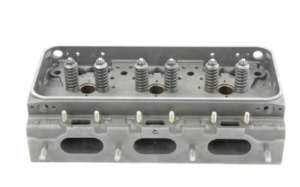March 27, 2025
What an Oil Pump Core Charge Is for Detroit Diesel Engines and Why Diesel Pro Power Charges One
What Is an Oil Pump Core Charge?
Why Oil Pumps Require a Core Charge
1. Oil Pumps Contain Hard-to-Find OEM Castings
2. Rebuilt Oil Pumps Depend on Your Used Pump
3. Many Oil Pumps Are Damaged or Worn Beyond Use
4. Ensures Inventory Stability for Global Customers
5. Keeps Rebuilt Oil Pump Prices Affordable
Why Diesel Pro Power Charges an Oil Pump Core Charge Specifically
The Customer Benefits of Returning Your Oil Pump Core
You receive your refund back in full
You help preserve Detroit Diesel engines
You ensure parts remain available
You support environmentally responsible rebuilding
Final Thoughts
Read More
March 26, 2025
Why Owner-Operators Should Buy a Detroit Diesel 3-71 Cylinder Head with Valves and Springs Installed — From Diesel Pro Power
1. The 3-71 Requires Precision for Reliability — and That Starts With the Cylinder Head
2. Installing Valves and Springs on a Bare Head Requires Specialized Skill
3. Time Is Money — Pre-Installed Components Save Hours of Labor
4. Buying a Pre-Assembled Head Reduces the Risk of Mistakes
5. Pre-Assembled Means Predictable Results
6. Diesel Pro Power Provides New, Not Rebuilt, Components
7. Perfect for Single-Engine Operators and Marine Applications
8. Diesel Pro Power Makes Ordering Simple and Reliable
Conclusion: A Smarter, Safer, Faster Solution for the 3-71 Owner-Operator
Read More
November 1, 2024
Importance of Regular Checks and Corrective Action
Proactive Troubleshooting Reduces Engine Downtime
Enhancing Overall Engine Performance
Reliability Through Precision
Accurate Torque Settings Prevent Component Wear and Leaks:
Detailed Parts Grading Ensures High-Quality Maintenance:
Encouragement for Consistent Troubleshooting Routines
Building a Predictive Maintenance Schedule:
Maintaining Engine Longevity and Reliability:
Read More
November 1, 2024
How to Use Diagnostic Tools Effectively
Preventive Tips During Repairs
Environmental and Operational Conditions
Read More
November 1, 2024
Criteria for Grading Parts
Visual Indicators
Lubrication System Parts
Cooling System Parts
Read More
November 1, 2024
Importance of Correct Torque Settings
Torque Specifications for Lubrication System
Torque Specifications for Cooling System
Cross-Pattern Tightening Method
Read More
Page 1 of 1812345...10...»Last »




 Free US Calls: 1-888-433-4735
Free US Calls: 1-888-433-4735 International: 305-545-5588
International: 305-545-5588




